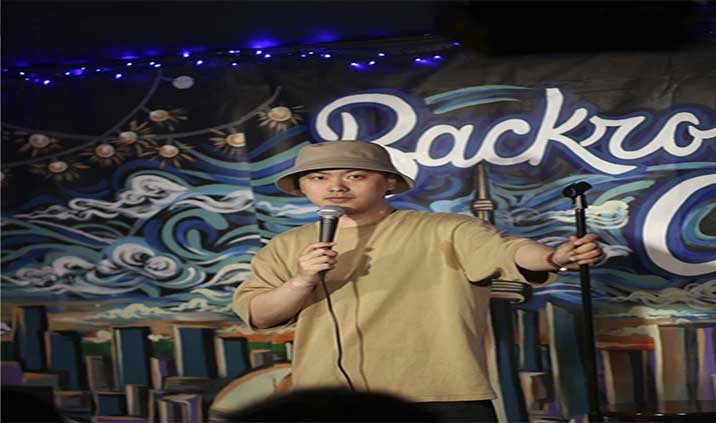China's government can't take a joke, so comedians living abroad censor themselves

World
China’s government can’t take a joke, so comedians living abroad censor themselves
WASHINGTON (AP) — Comedian Xi Diao says he knows he should avoid talking politics on stage, but sharing a family name with Chinese President Xi Jinping makes it hard to resist.
Even his name is politically sensitive, the Melbourne-based amateur comedian tells audiences, setting up a joke about a group chat on the Chinese messaging service WeChat being shut down as soon as he joined it.
The 33-year-old civil engineer gets nervous laughs whenever he breaks a de facto rule of Chinese comedy: Don’t say anything that makes China look bad. To most comedians, that means no jokes about censorship, no mentioning the president’s name, and no discussion of China’s extraordinarily strict COVID lockdowns or social topics like domestic violence.
“It is a pity, if the environment were open, there would be somebody world-class coming up,” Xi said.Mandarin-language standup comedy is growing, and not just in China. The medium has taken off in the last decade, and China’s expatriate population has established clubs in cities like New York, Tokyo and Madrid.
Comedians are known for bristling at limits, but most Mandarin-language comedians, and many fans, say some topics have no place in the comedy club.
In China there are censors who review jokes in advance, and punish performers who cross political red lines. Earlier this year, an entertainment company was fined about $2 million when star comedian Li Haoshi made a joke that referenced a Chinese military slogan.
Overseas, comedians say they don’t fear punishment, but most say political jokes aren’t funny, or make people uncomfortable. Many are not very familiar with political humor, after growing up in a country that largely censors it.
“We make what the audience likes,” said Guo Jia, a businessman who runs a comedy club in Tokyo. He said discomfort with politics is part of Chinese culture, comparing it to sensitivities about race in the United States.
“There are some areas where people won’t go, but it’s not typically because of government policies, but more social pressure or culture or religion,” said Michel Hockx, a professor of Chinese Literature and director of the Liu Institute for Asia and Asian Studies in University of Notre Dame.
Comedians do push on social boundaries.
For Lin Dongxiao, a 28-year-old comedian who began performing while living in Toronto, it was a chance to talk in public about a congenital disorder that causes limp, and to get crowds laughing with him about how Chinese society treats people with disabilities.
Lin, who performs under the stage name “Guazi,” told an audience that women he met online complained that he didn’t warn them he had a disability, so he added it to his dating profile.
“You’re scrolling … oh gym trainer, nice body; business executive, million-dollar salary; and then…third-class certificate of disability without any allowance.” People burst into laughter.
Standup fan Wenlai Cai, a Los Angeles-based software engineer in her early 30s, said that she enjoys hearing jokes about LGBTQ life and race relations, topics that are strictly off limits in the mainland.
But “there should be limits on (jokes about) high level politics” Cai said. “That is, political leaders, partisanship … I don’t think it’s meaningful to talk about.”
There are also a few venues that defy Beijing’s sensibilities. Women’s Idea, a feminist group in New York City, hosts uncensored comedy shows that often hit on politics, encouraging women to express themselves on social and political issues.
But even roundabout references to politics make most Chinese-language audiences uncomfortable, Xi said. After he performed at a Chinese restaurant in Australia, the owner asked him to be careful; at a standup competition, he got zero audience votes. He’s wound up performing almost exclusively at English-language venues.
Zhu Jiesheng, who runs a standup comedy club in Madrid, reviews other performers’ jokes before they go on stage, asking them to strike jokes that could cross political lines.
But when a comedian insisted on telling jokes about the Shanghai lockdown, Zhu didn’t stop him. The audience didn’t get the jokes, Zhu said, and it started arguments backstage, leaving him more convinced that politics and comedy don’t mix.
Comedians are very aware that people can get into trouble for what they say. Asked about Li Haoshi, comedians said he should have known better.
“Even if you do not make mistakes but someone else does, it affects the whole industry,” said Zhong Di, a 30-year-old student in Milan who also performs standup.


